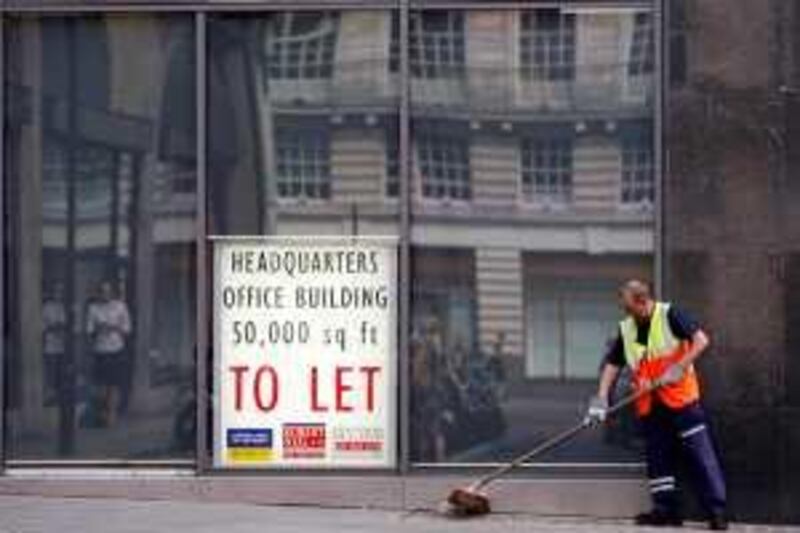LONDON // A pay freeze for Britain's six million public sector workers would be one of the least painful ways of rebalancing public finances, the head of the country's independent spending watchdog said yesterday. Steve Bundred, the chief executive of the Audit Commission, criticised politicians for failing to be honest about the need for cutbacks and said health and education should not be excluded.
"At a time when inflation is likely to be between 2 per cent and 3 per cent, a pain-free way of cutting public spending would be to freeze public sector pay," he wrote in The Observer newspaper. Britain's public deficit is forecast to reach £175 billion (Dh1.05 trillion) this year, more than 12 per cent of gross domestic product. In an interview on Sky television, Alistair Darling, the finance minister, did not rule out a pay freeze and said the government would be looking at wage settlements in the next few weeks.
"Public sector pay obviously has got to reflect prevailing conditions, and in particular inflation has come way down," said Mr Darling. "Of course, we have got to be fair with regard to people who work in the private sector, many of whom have seen their pay conditions somewhere near freeze." With a general election less than a year away, the debate over how to curb the deficit has become a hot political issue.
The prime minister Gordon Brown's Labour government, trailing in opinion polls, says the Conservative opposition would make big cuts in public services. The Conservatives accuse the government of playing fast and loose with the public finances, but have pledged to protect frontline services in schools and hospitals. Mr Bundred said the real choice at the next election was on the balance to be struck between tax rises and spending cuts, and where they should fall.
"First, let's dismiss the notion that the choice facing voters next year will be between cuts and investment in public services," he wrote. "Both parties know that savings are necessary and they may need to be greater than the mooted 10 per cent of current spending levels." The government is hoping Britain will pull out of its deepest recession in 50 years by the end of the year, boosting voters' morale and making the budgetary arithmetic slightly easier.
Mr Bundred said the government would struggle to meet its borrowing targets, even if the economy picked up. Public borrowing has exceeded the government's target for most of the past decade and is now running at its highest level since the Second Word War. Analysts fear that further deterioration in Britain's fiscal credibility could push up debt servicing costs. A report in The Sunday Times said senior civil servants were drawing up secret "doomsday" plans for 20 per cent cuts in public spending and feared that politicians were failing to tackle the deficit.
Mr Bundred said health and education workers should not be exempt from the austerity measures, particularly as they had done well in the past decade. "Don't believe the shroud wavers who tell you grannies will die and children will starve if spending is cut. They won't," he said. "Cuts are inevitable and perfectly manageable." * Reuters






